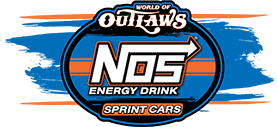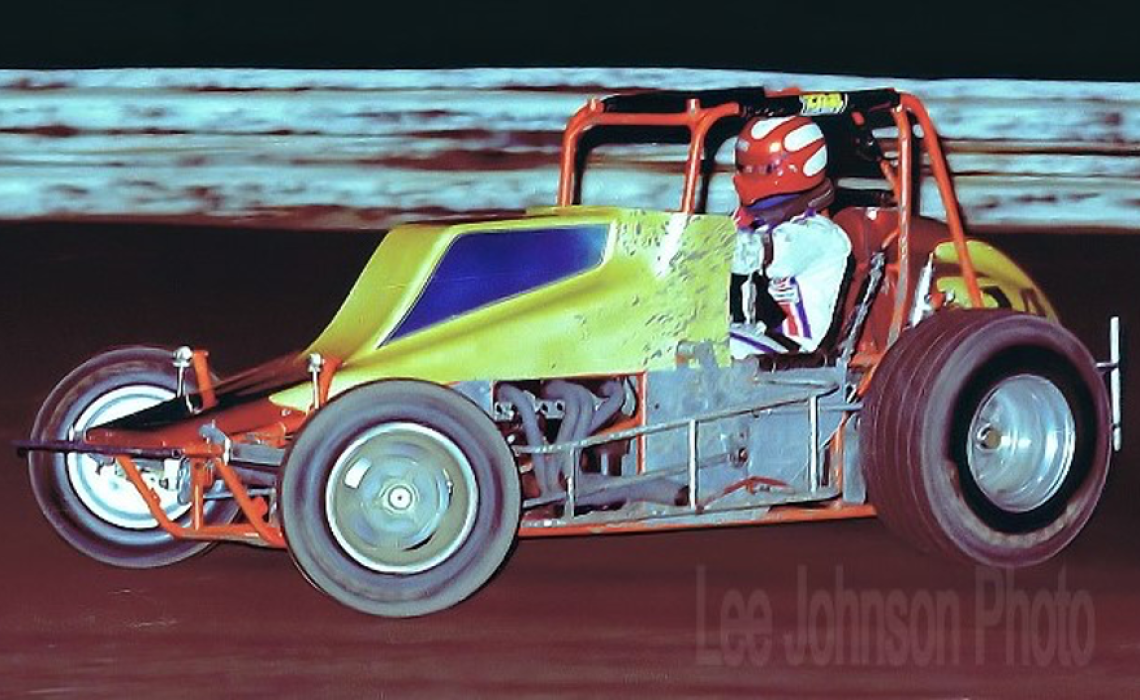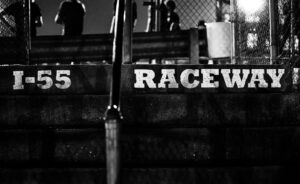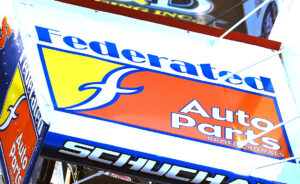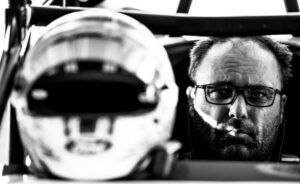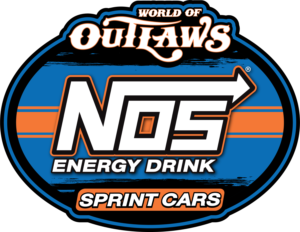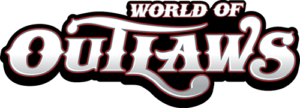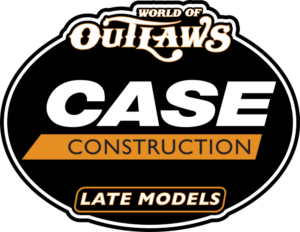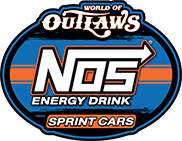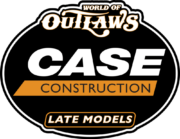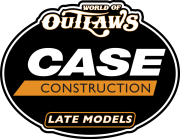The World of Outlaws was only four months old when it first visited the Missouri State Fairgrounds in Sedalia. On that summer evening in 1978 “The Buckeye Traveler” Rick Ferkel toted Two Grand back to Bowling Green, Ohio. During its second season, the World of Outlaws did not race in Missouri at all. It was neither scheduled nor rained out. Missouri was non-essential. Four decades later, Missouri has never been more essential.
State governors now arbitrate what is permissible. It is entirely possible that after combing Sedalia, Holts Summit, Odessa, Pevely, Moberly, Benton, West Plains, Joplin, Wheatland, Cameron and Lake Ozark history into advance hype, Governor Parson will order Pevely’s Federated Auto Parts Raceway at I-55 to stand down just as Governor Wolf told Selinsgrove Speedway last week. That is quite unlikely unless doctors see a spike in regional infections. No one can forecast the future. All that I can do is hum “The Ballad of Crockett and The Dude.”
“Crockett” was Merle Thomason, proprietor of the B&L Electric Company based 80 miles southeast of Kansas City in Clinton, MO. Crockett fielded winning sprint cars for Tod Bishop, Rick Ungar and Jimmy Sills and was enjoying his finest World of Outlaws season in 1984 when he dropped dead of a heart attack in Rapid City, SD. Jeff Swindell pulled off the Black Hills Speedway with a fourth-place finish to find his friend and boss all gone. “The Dude” was (is) Dover’s Danny Lasoski, who grew into the biggest winner Knoxville ever saw and remains the only World of Outlaws champ to call Missouri home.
It should be of small surprise that Missouri is challenging a national guideline. When the country went dry, Missouri shouted down prohibition on three ballots. Anheuser-Busch was too essential. “Let the good of the people be the supreme law” is chiseled in state capital limestone. Its most common slogan “Show Me” is stamped into license plates. It was a 1899 quote of Willard Vandiver when he said, “Frothy eloquence neither convinces nor satisfies me. I’m from Missouri and you have got to Show Me!” which basically means “Prove It!”
Missouri has often been on the fringe. Most settlers arrived with slaves and fought a losing Civil War to preserve bondage. Some returning rebels never stopped fighting. Frank and Jesse James rode with Quantrill’s Raiders that slaughtered soldiers after the armistice. Then they turned guns on Union banks. The James Gang robbed its first train in Adair, Iowa about 50 miles west of Des Moines. Jesse was from Kearney like Eddie Leavitt, who would win the Knoxville Nationals of 1975-76.
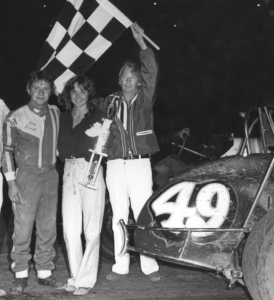
Like many water towns, Kansas City exists on both sides of the Missouri River separating Kansas from Missouri. During its heyday, Lakeside Speedway raced on the Kansas side while Riverside and Olympic Stadiums operated on Missouri shores. These were the river bottom bullrings that sharpened the teeth of Taylor Weld’s sons Jerry, Greg and Kenny. They stormed Iowa like bushwhackers seizing three straight Nationals. Pappy’s podium sweeps did stir such resentment that Kenny moved to York, PA. Five straight championships at Williams Grove followed. Greg became 1967 USAC Sprint Car champ, launched Weld Wheels with his banquet check, and was rookie to the 1970 Indianapolis 500. The next Kansas City star to win Nationals was Ray Lee Goodwin in 1968. KC giant Dick Sutcliffe was feared from Phoenix to Florida and his son Rick became the best rookie pitcher of 1979 for the Los Angeles Dodgers.
Baseball is big in Missouri. On its eastern border St. Louis Cardinals have won the World Series eleven times. On the west edge, Kansas City Royals own two but the 1985 trophy resulted from its I-70 series with St. Louis, making it especially sweet. Football has been rockier. One franchise left for Arizona. Another originated in Los Angeles, came to St. Louis to hoist a Lombardi Trophy with coach Dick Vermeil (son of a Napa sprint car legend) then bounced back to L.A. Kansas City Chiefs just brought home a second banner after a 40-year drought. But they maintain a better record than St. Louis Blues hockey that has one Stanley Cup in 50 years. Missouri cannot keep a basketball team. St. Louis Hawks headed for Atlanta; Kansas City Kings are in Sacramento.
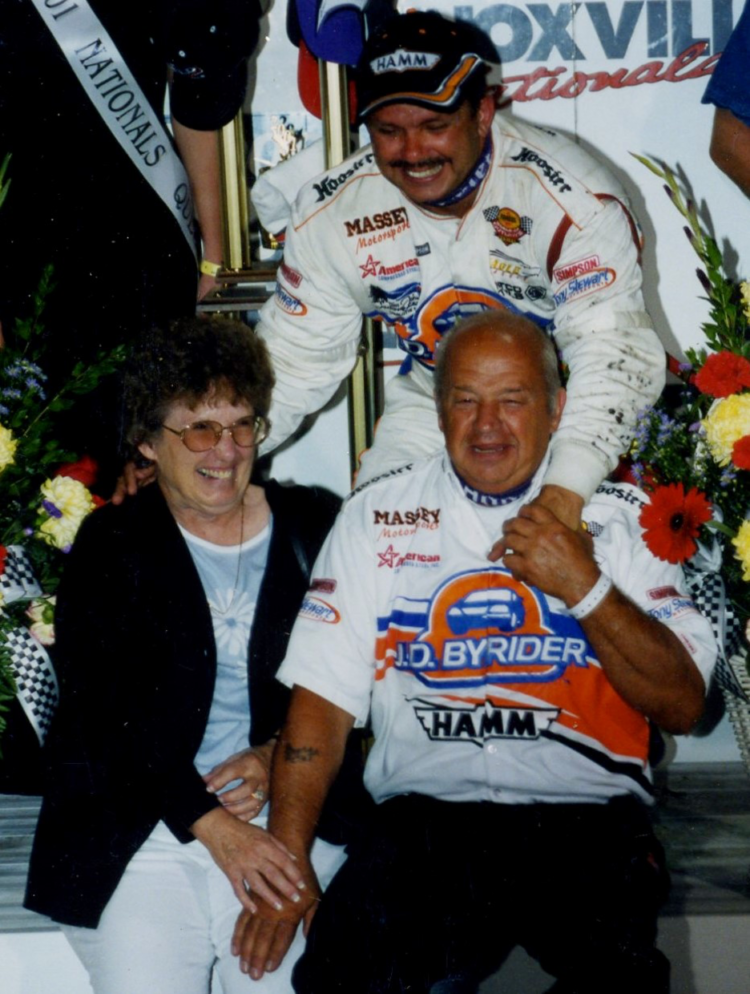
Kansas City’s first Outlaw show in 1979 was first to include George Lasoski and son Danny, both of whom missed the feature. “Where’s the little dude?” friends had long asked dad and a marketable nickname emerged. Danny started his first Outlaw A-main at Sedalia and was eighth against them in 1982. He traveled to Texas to open 1984 then followed uncle Tom Corbin into the potent Derry-Metcalf 22. Bob Derry turned The Dude into a Knoxville winner. They began 1985 in Oklahoma City and reached seventh against Outlaws at K-Ville. When he joined Iowa farmer Max Rogers in 1986, Lasoski raised his series-best to sixth at Granite City, earned the first of eleven Knoxville titles, and made his first Nationals final. Volusia was Danny’s first All Star win in 1988. That summer, he teamed with Guy Forbrook and less than a year later, they beat Outlaws at OKC.

“The Dude from Dover” became just the third Missouri native to win with the World of Outlaws. First was Fenton’s Ken Schrader in 1980 at Tri-City followed by Holts Summit realtor Gary Scott at Boone in 1981. It took 24 years before that trio was joined by Grain Valley’s Brian Brown, who has amassed Outlaw wins at Yuma, Tucson, Knoxville, Kansas City and Charlotte. Unlike his uncle Danny La Dude, Brown does not split the pot because Black Jack 21 belongs to him and 63 sponsors. One is Weld Wheels, which have carried Brian Brown to 160 victories. Scott became a martyr when his death brought wings to Knoxville and averted any boycott of the 1982 Nationals. Ten weeks later, Bob Nagel of Edwardsville, IL died with the World of Outlaws in Sedalia.
Few places match the mystique of the Missouri State Fairgrounds mile that saw its first race in 1907. An inner half-mile (0.54) was carved in 1949. IMCA fair dates were won by Bill Holland (‘52), Jud Larson (‘56), Jim McElreath (‘61), Bobby Unser (‘62), Al Unser (‘63), Greg Weld (‘64), Gordon Woolley (‘65) and Ray Lee Goodwin in 1971. USAC Champ Cars visited for 100-milers won by Albuquerque Al in 1970 and Mario Andretti in 1974. The Outlaws have staged 28 shows in Sedalia as recently as 2017.
Third in the very first World of Outlaws final in Texas was Tom Corbin of Carrollton driving for Ray Marler Music of Park Hills. Marler opened 1979 in Florida and Texas with Bob East before Schrader took the job. They clocked into the first Busch Bash at Eldora and made the 1981 Nationals final. Marler later organized weekly operations at St. Francois County Raceway in Farmington. Ray and Ken then partnered on a seven-year lease of I-55 that ended when they purchased the place in 2003. I-55 has held 57 features for the World of Outlaws. Federated Auto Parts sponsors the speedway and Schrader’s stock car.

Also at the 1978 Devil’s Bowl inaugural was Columbia’s Jerry Smith and his unpolished gem Steve Kinser. Texas was the last time Smith would have Steve because Karl Kinser phoned to change history. Jerry replaced Steve with Jimmy Sills, Tod Bishop, and Gene’s boy Steve Gennetten to name a few. Smith had a car owning partner in Archie Simpson, the last promoter at Capital who formed the Winged Outlaw Warriors and convinced Howard Schrock to build a brand new Lake Ozark Speedway in Eldon. They insisted that it sit on busy Highway 54 to beckon vacationers. Eldon became site of a third Lake Ozark Speedway after one in Osage Beach (‘50-52) and another in Camdenton in 1980-85.
Missouri’s third Outlaw stop happened in Holts Summit at Capital Speedway. They never returned. Any reconciliation collapsed when Capital welcomed Steve Kinser and Sammy Swindell with the upstart USA group. Ted Johnson never forgave those promoters who gave safe haven to his enemy. For this reason, Moberly Motorsports Park enjoyed only one Outlaw visit. Capital became housing in 2003. Moberly is now Randolph County Raceway.
Missouri returned as Mecca when Greg Weld spread clay on the steep pavement of I-70 Speedway in Odessa. Weld’s first Outlaw promotion resurrected the Jerry Weld Memorial for the brother who died in 1970 as a pedestrian. As a businessman, Greg knew money motivated racers so he offered lots of it. Hindsight hints that he paid too much given his seven-year shelf life. Some ideas involved Ted Johnson while others did not. Weld waited for the 1984 World of Outlaws season to close to pour Ted’s sanction fee into a $20,000 check to Jeff Swindell and Thomason’s grieving family. He offered USAC and CRA without wings, winged NCRA Supers and even NDRA Late Models that paid 20k to South Carolina’s Mike Duvall and future Tri-State promoter Tom Helfrich. I-70 was the fastest half-mile of its day: longer than Eldora and every bit as banked. Sammy Swindell averaged 124 MPH to establish an all-time record before the 1986 Weld Memorial. The 1987 Weld Memorial won by Rocky Hodges was the final sprint race on I-70 dirt. Greg Weld held 21 Outlaw events in six years. All too often, his promotional energy was extinguished by rain.
The 1984 Missouri State Fair marked the only Outlaw victory ever by Rick Ungar, an Ohio native who raced from Memphis, St. Louis and ultimately Indianapolis. Pevely first appeared on the docket in 1987 when the winner was Brad Doty, another Ohio product. On the last weekend before the 1989 Knoxville Nationals when Pevely was paired with the new Moberly bowl, Missouri and Nationals were swept by Doug Wolfgang using Warhead engines assembled by Tipton’s John Singer. John had won the Tony Hulman Classic with Jan Opperman and Nationals with Leavitt in three months of 1976. Outlaw rigs of Tom Garrett and Lloyd Stephens also sat at Singer’s shop as he toiled for Shane Carson and Ron Shuman.

Missouri International Race Park opened in 1991 in the Mississippi River basin at Benton, home to 836 citizens. The World of Outlaws appeared south of Cape Girardeau for five Aprils in a row. Benton’s track closed after 2014. It was the closest oval to Charleston, home to the Hall Race Engines that supplied legendary Chuck Amati plus East Prairie’s Lee Dunn. Lee was Jim Hall’s grandson who was second against Georgia All Stars and seventh with Tri-State Outlaws in 1995. Jerry Bumgarner flew Dunn to NARC Speed Week. His win in the 1997 Queens Royale at Farmington was worth $5000. Lee was done after 2003.
Benton was twice paired with West Plains Motor Speedway to provide gorgeous spring rides through the Mark Twain National Forest on mountainous Highway 160. It was Twain of Hannibal who wrote, “Never have a battle of wits with an unarmed person.” West Plains 1997 was the only Outlaw win by Kelly Kinser, who subbed for Mark Kinser while Mark monkeyed with NASCAR trucks. West Plains is now Legit Speedway Park.
Even his most disapproving Missouri neighbors swelled with pride when Lasoski finally landed Nationals with Dennis Roth. He would add three more for Tony Stewart. “Danny the Dude” swept the first World of Outlaws weekend at Joplin 66 Speedway on a path to his first series title in 2000. Joplin 2004 was the first series success by Terry McCarl though he owned his 1996 Nationals prelim for Missouri physician Brad Gray. Within weeks, Joplin 66 closed for good.
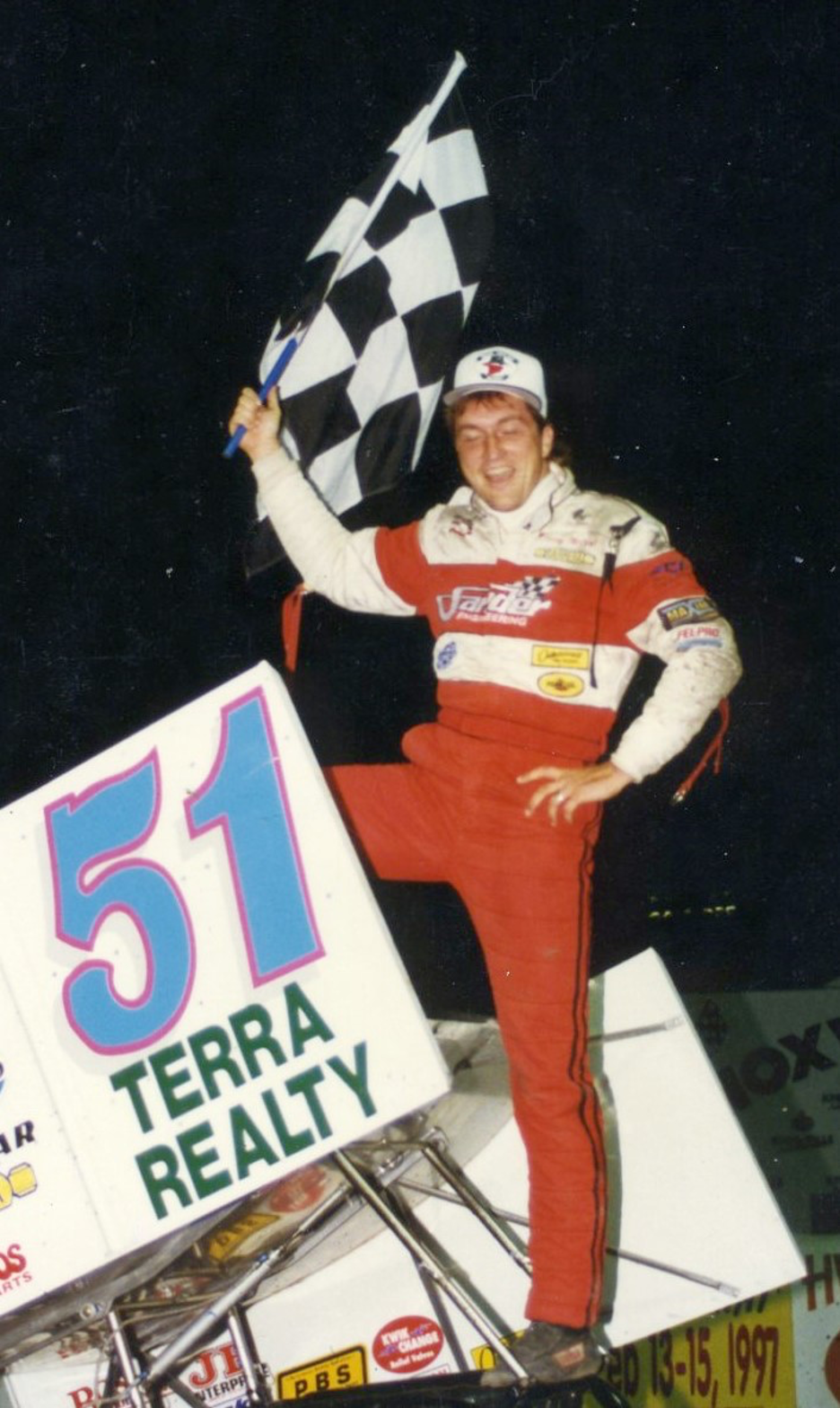
Losing a theatre in Missouri’s southwest corridor was a blow to commerce because Springfield and Joplin provide a major hub of interstate trucking integral to Outlaw diesels. Springfield is also one of the state’s largest employers thanks to O’Reilly Auto Parts and Bass Pro Shops. Fishing in Missouri is more than a hobby. It is an industry and competitive sport. An angler named Johnny Morris built his first Tracker Boat in 1978 then sold those fiberglass molds to Bass Pro, which also owns 82 Cabela’s throughout America.
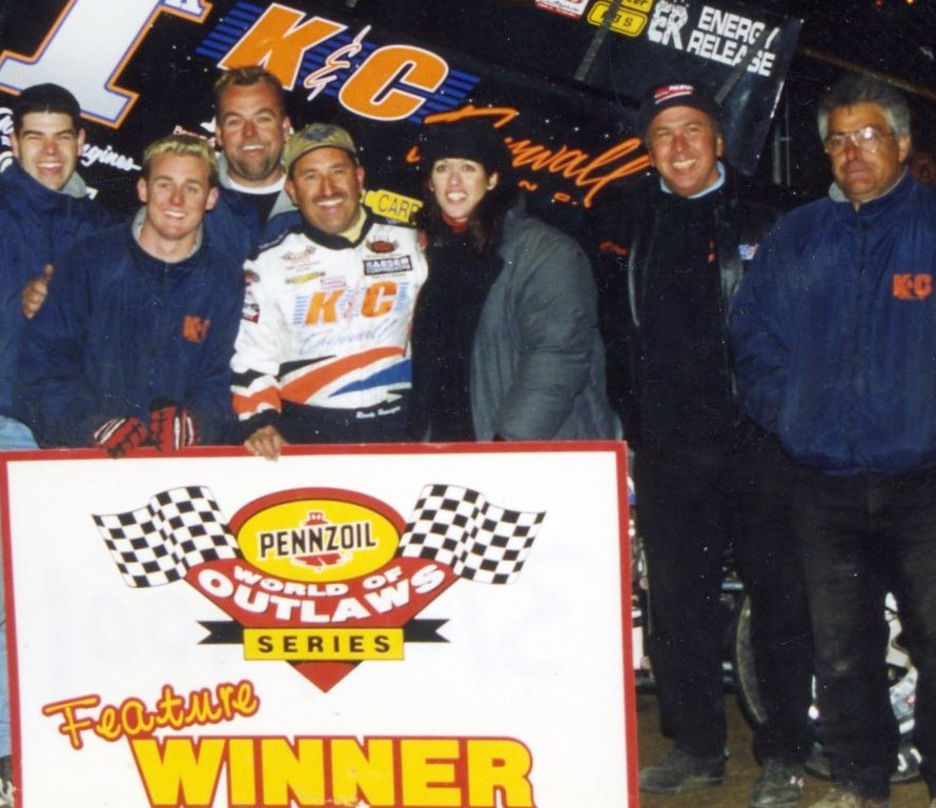
March of 2001 was brutally cold in Sedalia and Pevely but hearty fans warmed to first-time series victories by Norcal natives Paul McMahan and Randy Hannagan. Paul moved from Sacramento to Nashville, TN and Randy remarried from San Jose to Indianapolis. McMahan’s win on the Missouri State Fairgrounds was the only series checkered for Michigan’s Warren Johnson. Tyler Walker’s win at Sedalia in 2002 marked the first Outlaw score for Oklahoma’s Wallace Ledford. Pevely provided the first Outlaw victory by All Star champion Chad Kemenah in 2005.
The first World of Outlaws event at U.S 36 Speedway was the first Outlaw victory for San Jose’s Rick Wright. Jac Haudenschild turned the trick for Rick on those nine-second hills between Osborn and Cameron. Highway 36 was the route of the 1860 Pony Express that began its 1900-mile horse race to Sacramento from St. Joseph. U.S 36 Speedway is closest to the grave of Jesse James. Haudenschild also earned the only Outlaw glory from sparkling Lucas Oil Raceway in Wheatland in 2008 while driving for Leonard Lee in the Carnahan R19.
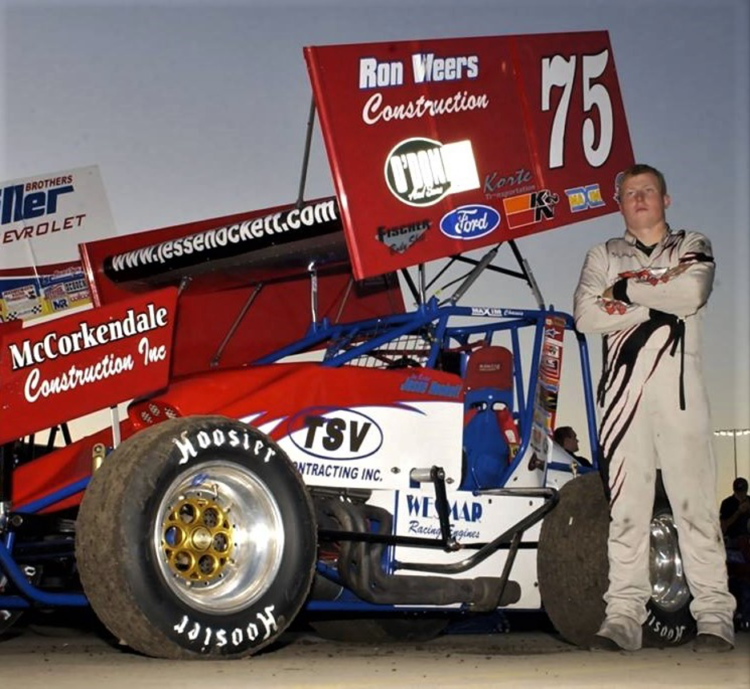
Warsaw’s Jesse Hockett was Missouri’s brief gift to sprint car racing. Hockett had short Outlaw stints with Rick Wright and Kasey Kahne. He made the 2004 Knoxville Nationals final. He toured Australia. Yet as good as Jesse was with wings, he seemed stronger without them so he moved to Indianapolis to chase USAC. In an inexplicable end, Hockett was electrocuted by his own transporter in 2010. Jesse did pass on his love of Lake of the Ozarks to Jason Johnson.
Sikeston produced Jerrod Hull, Daron Clayton and Hunter Scheuerenberg. Hull’s father purchased Sammy Swindell’s coil car and then summoned Swindell to drive it at the 1993 Knoxville Nationals. Jerrod’s best Outlaw finish was seventh at Haubstadt. Clayton and Hunter followed Hockett to USAC but more recently, Hunter was back beneath wings for second at Haubstadt and tenth at Iron Man 55. Though considered a young man’s game, Iron Man’s last two winners were Logan Schuchart and Sheldon Haudenschild, grandsons of Bobby Allen and Max Sweeney. Pevely’s first Outlaw stop of 2015 was the second series win by Christopher Bell and only one for Keith Kunz, the top crew chief in midget racing. One of Keith’s four-cylinder students was Rico Abreu, the short man who ascended Iron Man’s top step in 2016.
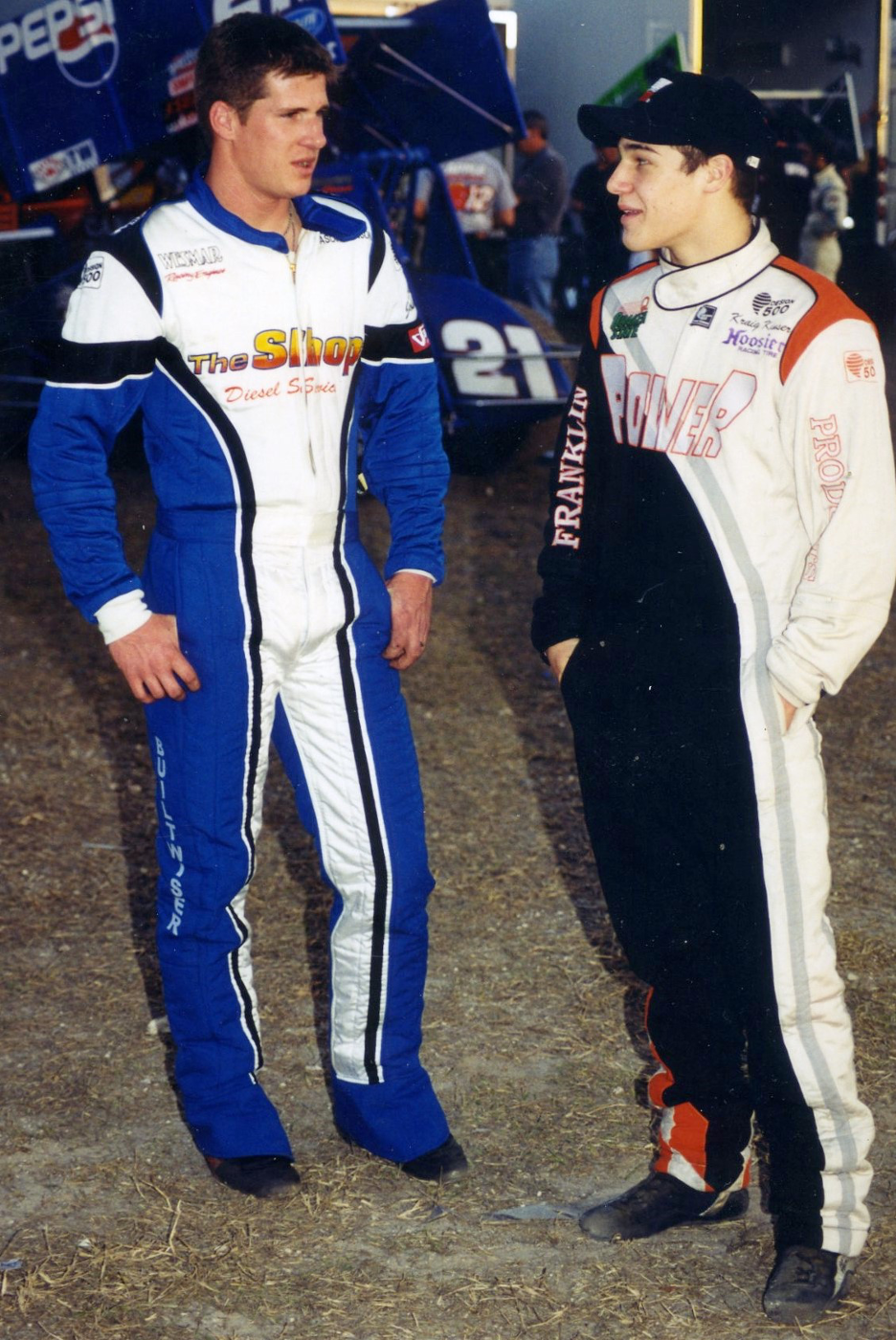
“The Cajun Sensation” Jason Johnson first defeated The Outlaws at Texas Motor Speedway (2003) and Williams Grove in 2005 while a resident of Eunice, LA. After achieving ASCS championship checks endorsed by Lucas Oil, he shifted operations from 360 to 410 engines in a new shop in Rocky Mount, MO. Outlaw checkereds fell from Willamette to Placerville, El Paso Co, Devil’s Bowl, Fargo, Jackson, Charlotte, Volusia, and Knoxville Nationals.
After her husband perished in Wisconsin, widow Bobbi Johnson pressed on again. Two decades earlier with the World of Outlaws in Nebraska, she lost her fiance Kevin Gobrecht. Clearly she possesses an inner fire only a few can imagine. She gathered business partners, retained Jason’s crew, and hired David Gravel. Nine wins in 2019 were highlighted by David’s first Nationals conquest. Two months later, Lake Ozark Speedway’s first Jason Johnson 41 was won by Jason Johnson Racing 41. Last week’s return to live action saw David win at Knoxville again.

When a driver or car owner dies in the middle of their season, surviving families often accept the practice of finishing what the fallen had started. This was the case with Crockett Thomason in 1984. It is also accepted that auto racing will sympathize if the widow never wants to see another race car ag. All of which makes Bobbi Johnson all the more remarkable. Her beloved “Cajun Sensation” constructed a team so strong that he is still winning races two years after leaving this earth.
ok
